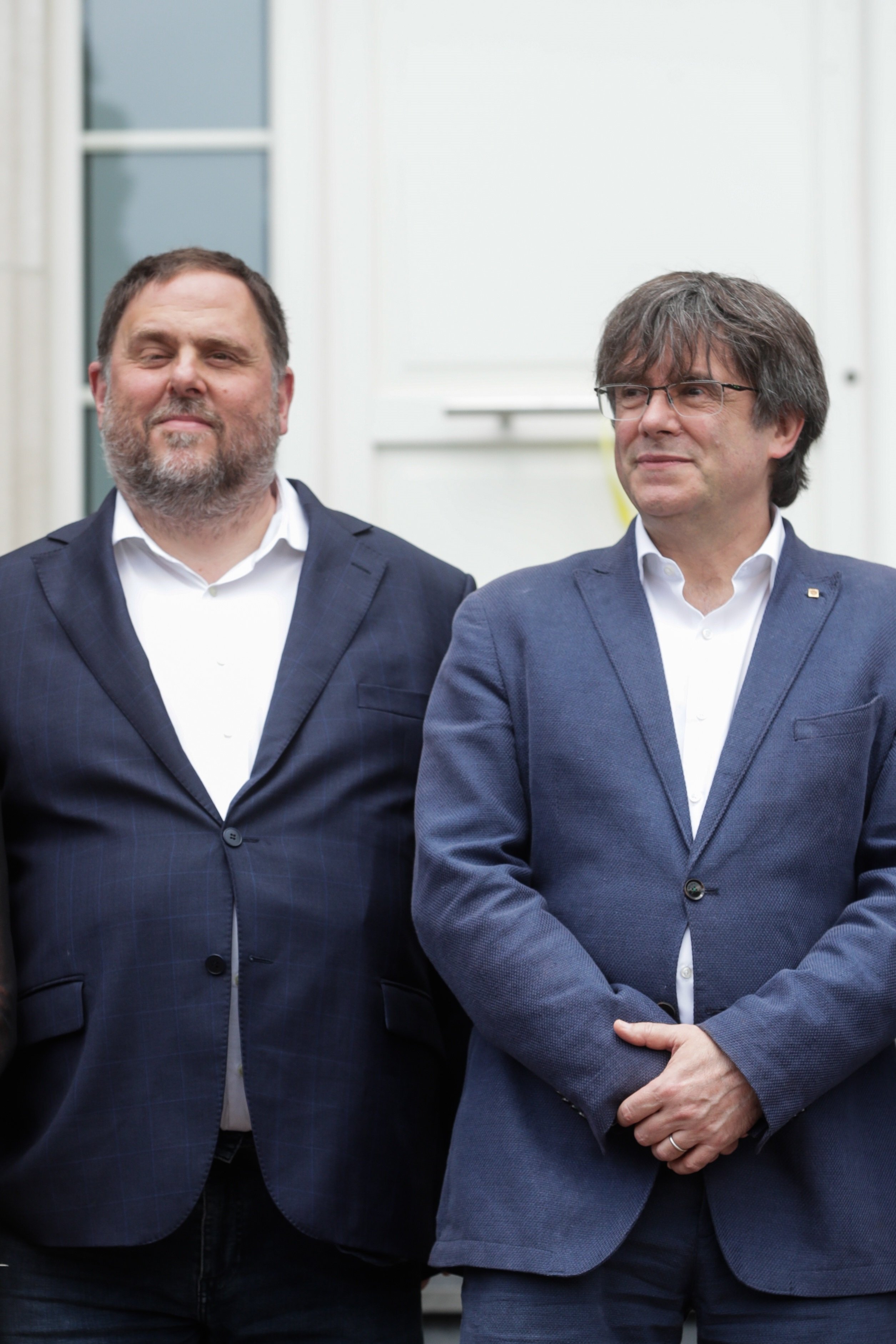Spain's public auditing tribunal, the Court of Accounts, announced this Monday afternoon that it has set a date of November 17th for the trial against 35 ex-officials of the Catalan governments led by Artur Mas and Carles Puigdemont with vice-president Oriol Junqueras, from whom 3.2 million euros are claimed by the public prosecutors - 5 million euros by the anti-independence Societat Civil Catalana group which is conducting a private prosecution in the case - for the spending on the referendum of 1st October 2017 and the promotion of Catalonia abroad from 2011 to 2017. In a preliminary hearing last December 16th in Madrid, the tribunal already verbally rejected a proposal to suspend the Catalan case, despite the fact that defence lawyers reiterated that the Catalan government itself was not harmed by the spending, and now the same "trial councillor" - not a judge as the tribunal is not a full court of law - has rejected several pending appeals.
The Spanish body has thus specified that the trial will begin at 9am on November 17th, and that at the hearing the interrogation of defendants and witnesses already admitted will be carried out. And then, the lawyers will sum up and the tribunal officials will rule. Trial councilor Elena Hernáez has agreed to admit a testimony from former Catalan president Carles Puigdemont, which will probably be made by video conference.
Appeals all dismissed
The Court of Accounts has this Monday announced the rejection of all the appeals made by the co-defendants. These include a request by the defence teams of Oriol Junqueras, Raül Romeva and seven other co-defendants that the money deposited as a guarantee of alleged accounting liability, fixed in a provisional settlement on January 28th, 2020 at 4,146,274 euros, be transferred to the coffers of the Catalan government or be offered as a deposit, conditional on the final result of the process, which the appelants will also appeal. Nor did the tribunal agree to suspend the calculation of late interest, an issue which in the earlier auditing case on the expenses of the Catalan 9-N consulta of 2014, led to the lengthening of the embargo on the assets of former Catalan president Artur Mas and three ministers.
The trial councillor for the Spanish tribunal also ruled out returning the deposited money, as claimed by Gonzalo Boye, president Puigdemont's lawyer, who insisted that by maintaining the accounting procedure the principle non bis in idem (not to be tried twice for the same thing) is violated for his client. The Court of Accounts quoted jurisprudence to assert that the two procedures can be maintained at the same time and that the deposit of money can be amended if it has already been provided in one of the two cases, with a final judgment.
In the 2019 Supreme Court verdict against 12 pro-independence leaders, the court referred the issue of the civil liability bonds for the financing of the referendum to the Court of Accounts. However, there are 5.8 million euros deposited in a judicial account, by order of a Barcelona court, since 2019, while the Court of Accounts itself has 1.2 million euros held as bond for the alleged referendum liability. The Catalan foreign ministry spending, with liability estimated at 2.2 million euros, was covered by guarantees from the Catalan Institute of Finance (ICF) and in this case the Spanish Tribunal did agree to return the money contributed as bond by the ERC political party and other bodies.

